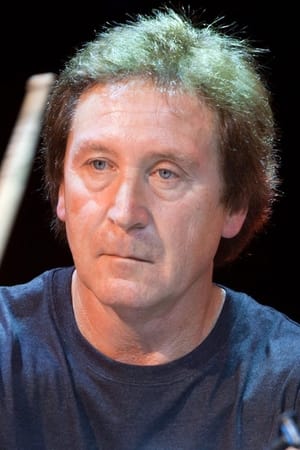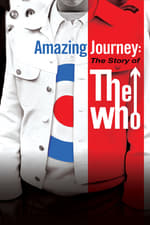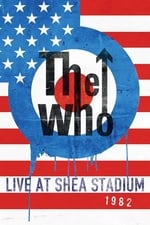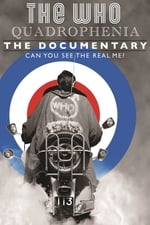Personal Info
Known For Acting
Known Credits 14
Gender Male
Birthday September 16, 1948 (75 years old)
Place of Birth Stepney, London, England, UK
Also Known As
- The Who
- Kenneth Thomas Jones
Content Score
100
Yes! Looking good!
Login to report an issue
Biography
Kenneth Thomas "Kenney" Jones (born 16 September 1948) is an English drummer best known for his work in the groups Small Faces, Faces, and the Who. Jones was inducted into the Rock and Roll Hall of Fame in 2012 as a member of Small Faces/Faces. Jones was born in Whitechapel, London, England.
Having previously been in a band with Ronnie Lane, Jones was one of the founding members of the English rock group Small Faces. Active from 1965 to 1969, Small Faces were part of the Mod trend of the 1960s. Their hits included "All or Nothing", "Sha-La-La-La-Lee", "Itchycoo Park" and "Tin Soldier".
In 2007, Small Faces were honoured by Westminster Council with a commemorative plaque placed at what was Don Arden's offices in Carnaby Street, the band's "spiritual home". Jones himself unveiled the plaque. In a BBC interview, Jones said: "To honour the Small Faces after all these years is a terrific achievement. I only wish that Steve Marriott, Ronnie Lane and Don Arden were here to enjoy this moment with me". Since the death of Jimmy Winston in September 2020, Jones and Rick Wills are the sole surviving members of the Small Faces.
In 2004 The Observer listed the Small Faces' 1968 release Ogdens' Nut Gone Flake one of the "top British albums of all time".
After the departure of lead singer/guitarist Steve Marriott in 1969, the group recruited singer Rod Stewart and guitarist Ronnie Wood to replace Marriott. Both were formerly with the Jeff Beck Group. The band changed its name to the Faces, as the original name was associated with the small stature of its members, and Stewart and Wood did not fit the description. Jones remained with the band until its dissolution in late 1975, recording four studio albums and a live album with them.
In November 1978, Jones was invited by guitarist Pete Townshend and manager Bill Curbishley to join The Who, replacing their original drummer Keith Moon, who had died of a drug overdose in September. He was invited, in part, because the band had been friendly with him from his days with the Small Faces (he and Moon were friends and were together on the last night of Moon's life in 1978, as part of the viewing party put together by Paul McCartney for The Buddy Holly Story), and because he had played with Townshend, Roger Daltrey and John Entwistle on the Tommy soundtrack. He played on the albums Face Dances and It's Hard and also played on the soundtrack for Daltrey's film McVicar, as well as on the band's tours from 1979 to 1982. Jones played with the band at Live Aid in 1985.
Jones' final appearance as a regular member of the Who was when the group received a lifetime achievement award at the 1988 British Phonographic Industry awards ceremony. He was frequently at odds with Daltrey, who felt that Jones' drumming style was not right for the band (Jones's playing was usually straighter and less frenetic than Moon's), but Daltrey has denied having anything personal against Jones or his drumming.
Jones was replaced by Simon Phillips for the Who's 1989 reunion tour. In an April 2011 special edition of Uncut magazine, Townshend said that Jones was a good choice for the band. ...
Source: Article "Kenney Jones" from Wikipedia in English, licensed under CC-BY-SA 3.0.
Kenneth Thomas "Kenney" Jones (born 16 September 1948) is an English drummer best known for his work in the groups Small Faces, Faces, and the Who. Jones was inducted into the Rock and Roll Hall of Fame in 2012 as a member of Small Faces/Faces. Jones was born in Whitechapel, London, England.
Having previously been in a band with Ronnie Lane, Jones was one of the founding members of the English rock group Small Faces. Active from 1965 to 1969, Small Faces were part of the Mod trend of the 1960s. Their hits included "All or Nothing", "Sha-La-La-La-Lee", "Itchycoo Park" and "Tin Soldier".
In 2007, Small Faces were honoured by Westminster Council with a commemorative plaque placed at what was Don Arden's offices in Carnaby Street, the band's "spiritual home". Jones himself unveiled the plaque. In a BBC interview, Jones said: "To honour the Small Faces after all these years is a terrific achievement. I only wish that Steve Marriott, Ronnie Lane and Don Arden were here to enjoy this moment with me". Since the death of Jimmy Winston in September 2020, Jones and Rick Wills are the sole surviving members of the Small Faces.
In 2004 The Observer listed the Small Faces' 1968 release Ogdens' Nut Gone Flake one of the "top British albums of all time".
After the departure of lead singer/guitarist Steve Marriott in 1969, the group recruited singer Rod Stewart and guitarist Ronnie Wood to replace Marriott. Both were formerly with the Jeff Beck Group. The band changed its name to the Faces, as the original name was associated with the small stature of its members, and Stewart and Wood did not fit the description. Jones remained with the band until its dissolution in late 1975, recording four studio albums and a live album with them.
In November 1978, Jones was invited by guitarist Pete Townshend and manager Bill Curbishley to join The Who, replacing their original drummer Keith Moon, who had died of a drug overdose in September. He was invited, in part, because the band had been friendly with him from his days with the Small Faces (he and Moon were friends and were together on the last night of Moon's life in 1978, as part of the viewing party put together by Paul McCartney for The Buddy Holly Story), and because he had played with Townshend, Roger Daltrey and John Entwistle on the Tommy soundtrack. He played on the albums Face Dances and It's Hard and also played on the soundtrack for Daltrey's film McVicar, as well as on the band's tours from 1979 to 1982. Jones played with the band at Live Aid in 1985.
Jones' final appearance as a regular member of the Who was when the group received a lifetime achievement award at the 1988 British Phonographic Industry awards ceremony. He was frequently at odds with Daltrey, who felt that Jones' drumming style was not right for the band (Jones's playing was usually straighter and less frenetic than Moon's), but Daltrey has denied having anything personal against Jones or his drumming.
Jones was replaced by Simon Phillips for the Who's 1989 reunion tour. In an April 2011 special edition of Uncut magazine, Townshend said that Jones was a good choice for the band. ...
Source: Article "Kenney Jones" from Wikipedia in English, licensed under CC-BY-SA 3.0.
Acting
|
||||||
|
||||||
|
||||||
|
||||||
|
||||||
|
||||||
|
||||||
|
||||||
|
||||||
|
||||||
|
||||||
|
||||||
|







